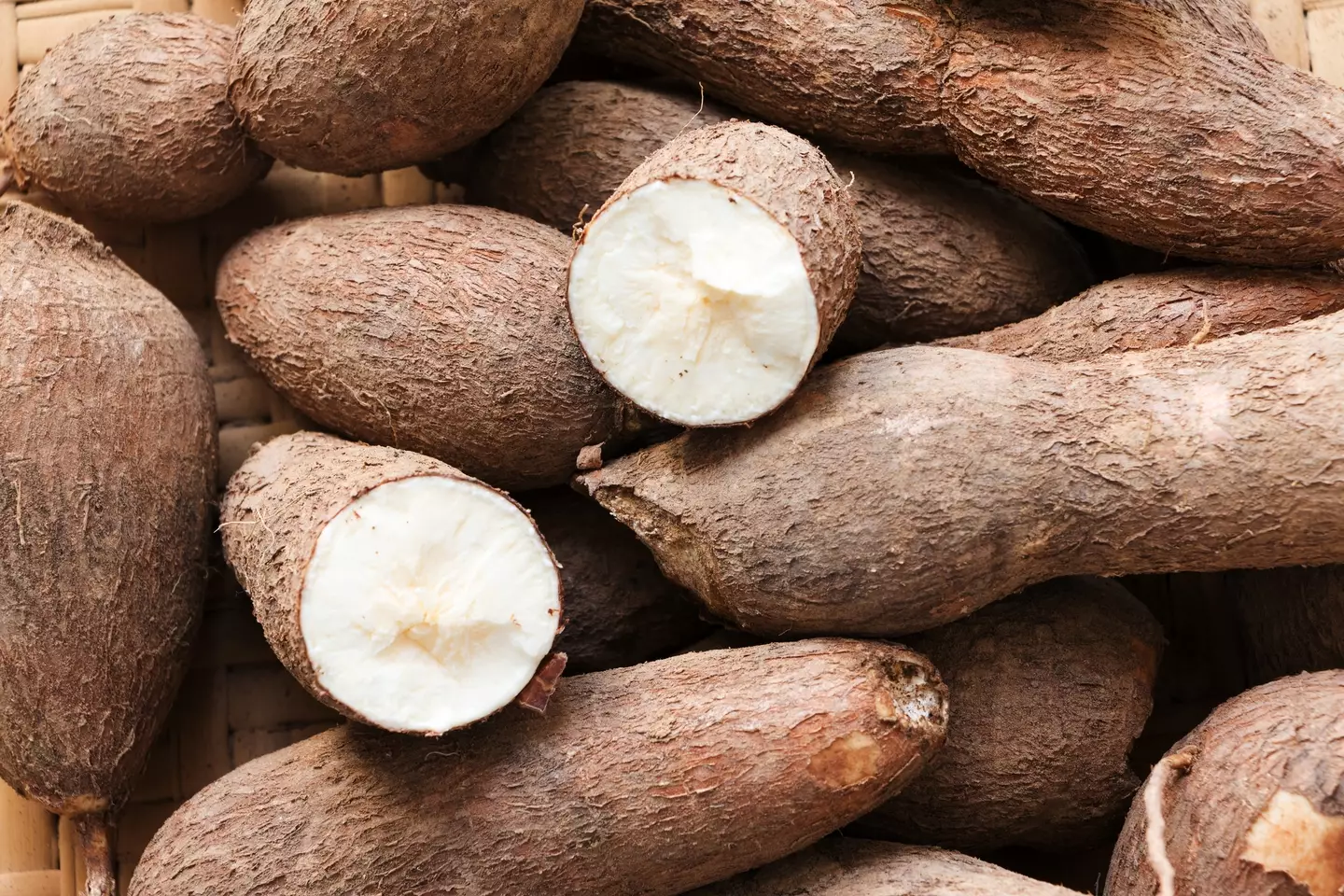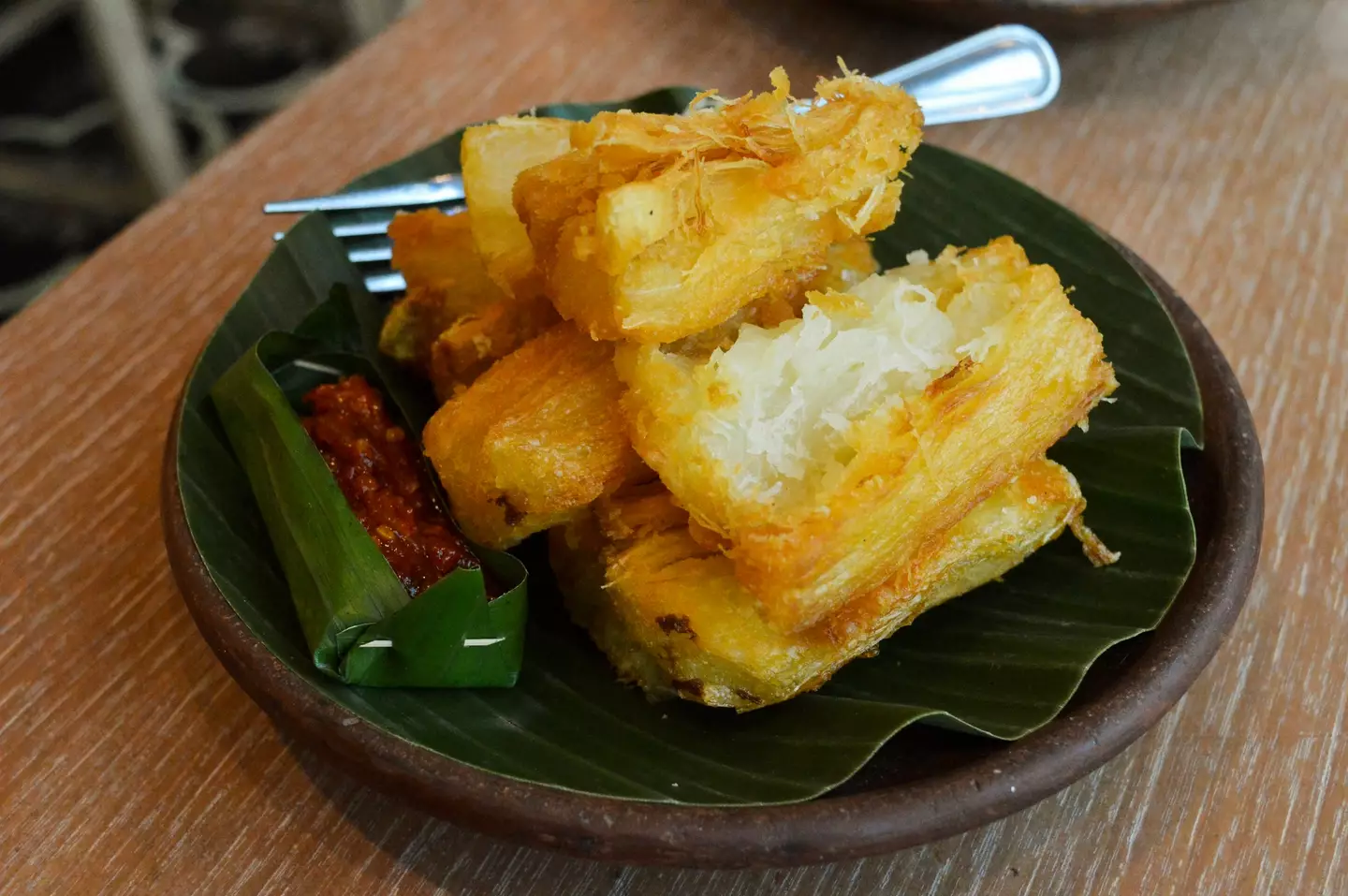
Some foods can become dangerously inedible if not prepared properly, much like that time your [insert family member whom you don’t like all that much] tried cooking a Moroccan tagine that had you on the toilet at 4am and fighting for your life.
Some foodstuffs can be altogether more deadly than that if cooked incorrectly, however, and cassava is a particularly problematic one.
It’s regularly consumed by around half a billion people, and this huge popularity probably goes some way to accounting for its unusual death toll.
Some have dubbed it “the world’s deadliest food”, but that doesn’t stop hundreds of millions of tonnes of cassava getting produced and (mostly) eaten every year.
Advert

The cassava plant grows in tropical climates, and while it’s native to South America the bulk of it is now grown in Nigeria.
While cassava is a popular diet staple for around 500 million people, its roots, peel and leaves are all dangerous to eat raw owing to the fact they contain hydrogen cyanide.
If the name doesn’t give it away, hydrogen cyanide is not something you want in your body.
Sweet cassava contains as much as 20mg of cyanide per kilo, while the more bitter varieties can feature a full 1,000mg of it.
According to the World Health Organisation, cassava poisoning is responsible for around 200 deaths per year so, relatively speaking, it’s deadly but not commonly dangerous.
If you’re one of the half-billion people who consume it each year, your odds of it killing you in that year are around 200 in 500,000,000, or 0.00004%. However, there are other health-related cassava concerns besides death, such as its link to the neurological disorder ataxia.
The reason for that is that, by and large, people are good at properly preparing cassava.

Preparation amounts to soaking it in water for between seven and 48 hours before cooking it until it’s become tender. It’s a simple process, which probably accounts for the relative rarity of cassava poisoning.
However, food scarcity can cause spikes in people resorting to eating dangerous foods or rushing their preparation.
Back in 2017, Fox News reported that a food shortage in Venezuela had increased the rate of cassava poisonings as people sought to fend off starvation.
While you can be pretty confident in eating cassava without getting ill, be sure to take care if you choose to try preparing some yourself.
